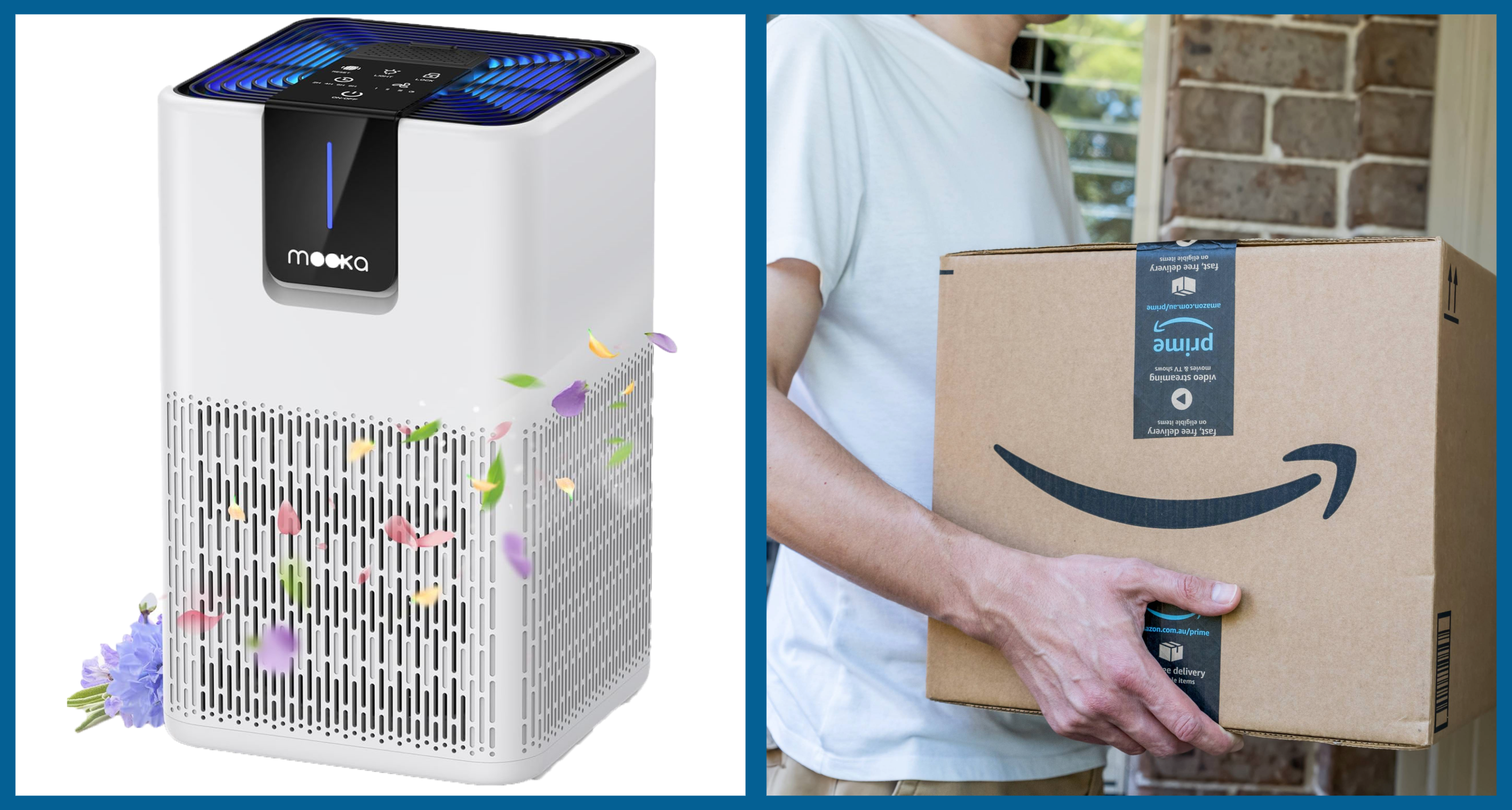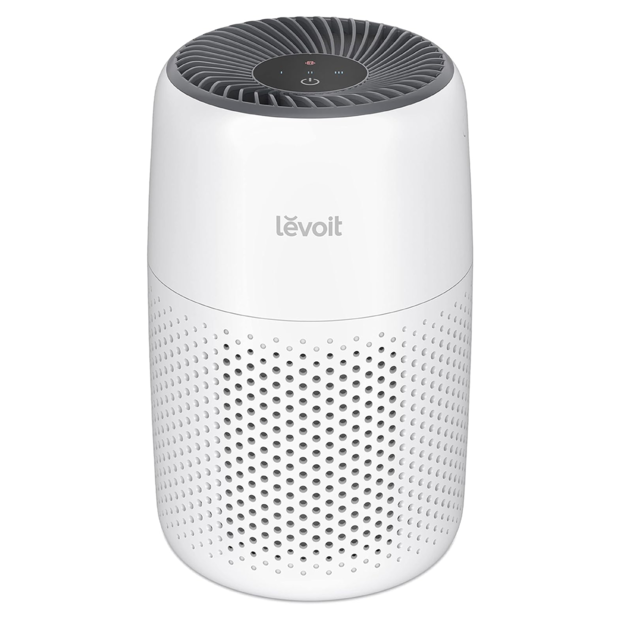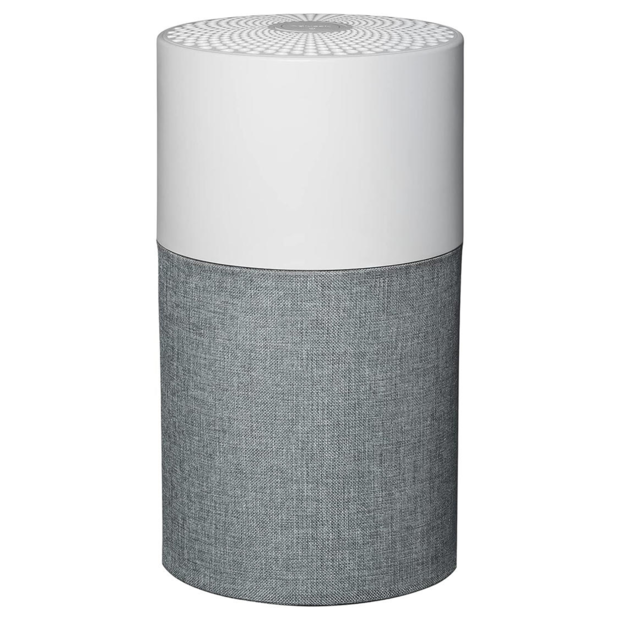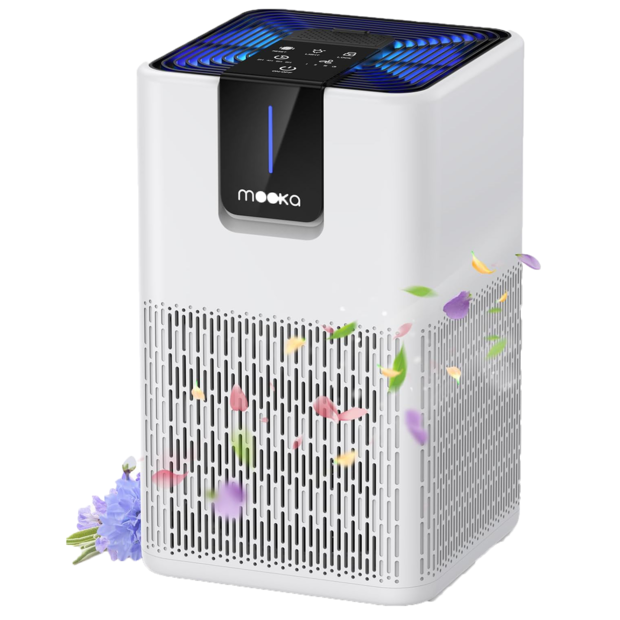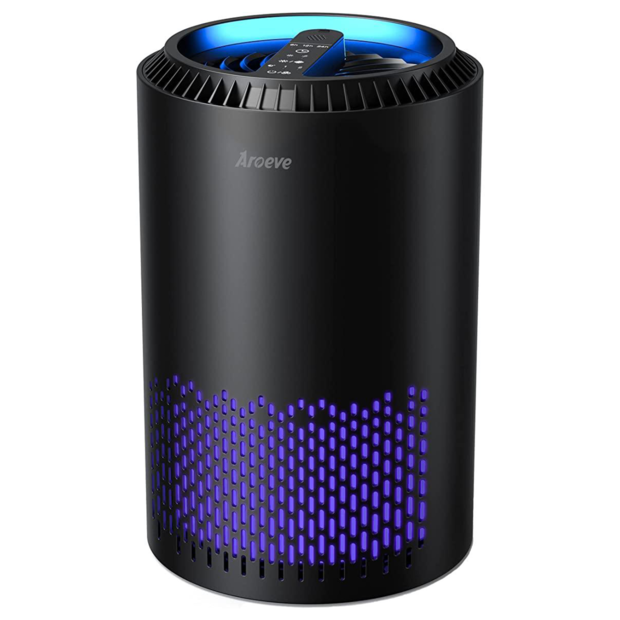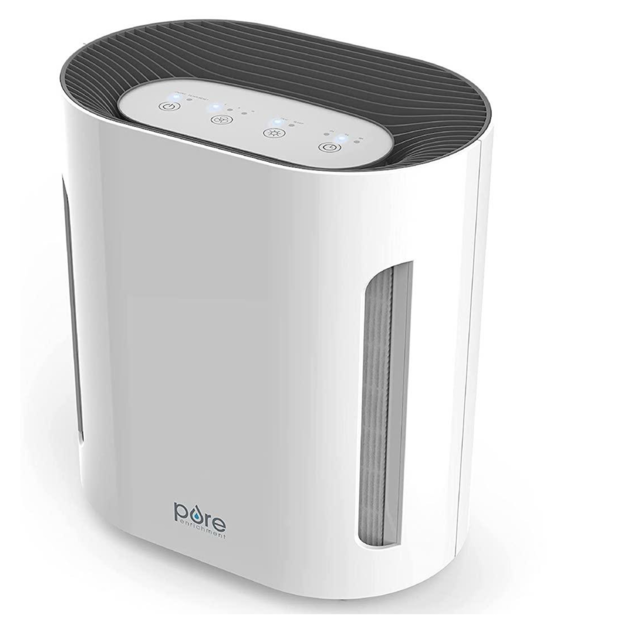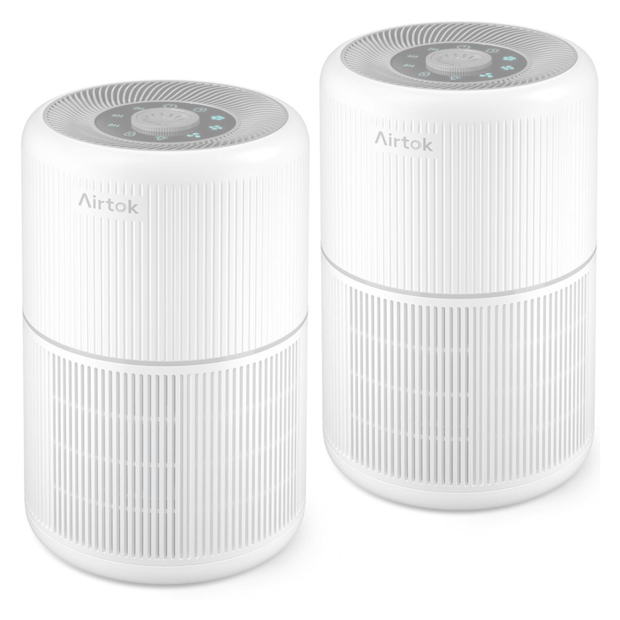Best air purifier deals on Amazon ahead of Prime Big Deal Days 2024
Air purifiers can be expensive, but keeping the air clean in your home is worth the money -- especially with the Amazon deals we rounded up below. With summer on its way out, now is the perfect time to buy; not only is October National Air Quality Awareness Month (aka the perfect time to upgrade your home with a quality air purifier), but it's also the month that shoppers can find a wave of deals and discounts during Amazon Prime Big Deal Days, an upcoming Prime Day-like sales event for everyone who doesn't want to wait until next July to save on appliances, the latest tech and more.
Put simply, you need an air purifier. Air purifiers are excellent tools for filtering out airborne pollutants, curbing the spread of viruses and improving your indoor air quality. Air purifiers can reduce the presence of pet dander, dust mites, allergens, air pollutants and more in your home. An air purifier can even help relieve allergy symptoms, whether they're seasonal or perennial. Instead of entering your body, airborne particles enter the air filter, leaving you with crisp, clean air in your home.
Thankfully, you don't have to wait for Amazon Prime Big Deal Days to save on top notch air purifiers. We combed Amazon to find the best deals and markdowns on budget-conscious options.
Best air purifier deals on Amazon ahead of Prime Big Deal Days 2024
Find the biggest savings on the most reliable (and popular) air purifiers that can be found on Amazon in 2024 below.
- Levoit three-in-one core mini air purifier (white): 20% off
- Blueair Blue Pure 511 air purifier: 15% off
- Mooka large room air purifier: Up to 42% off in combined savings
- Aroeve portable air purifier: $10 off with an Amazon coupon
- Pure Enrichment PureZone medium-large room air purifier: Save up to $50
- Airtok air purifier: 32% off
Whether you need a powerful air purifier with multiple filter layers, a large air purifier for spacious rooms or multiple purifiers to use throughout the house, we have you covered with the best Amazon deals on air purifiers in 2024 below.
Save 20% on the Levoit three-in-one core mini air purifier (white)
With over 23,000 customer reviews and a 4.6 star rating out of five, this compact air purifier is one of the most popular Amazon appliances in the category of home air purifiers. Thanks to a limited time deal that knocks off 20% from the list price, this is also one of the best air purifier deals you'll find on Amazon.
This three-in-one air purifier offers three layers of filtration thanks to a pre-filter, filter and activated carbon filter. This can be perfect for filtering out smoke, pet dander or dust with ease. Put this in your bedroom or home office for a refreshing feel.
Originally available for $50, this Levoit core mini air purifier is currently marked down 20%. This deal is exclusively for the white color edition -- the black edition Levoit core mini air purifier is not included in this deal.
Get 15% off with coupon on the Blueair Blue Pure 511 air purifier
This ultra-quiet air purifier reaches 24 dB on low and just 49 dB on high. The Blue Pure 511 air purifier is equipped with HEPASilent technology, and promises to remove at least 99.97% of airborne particles, including viruses, bacteria, dust, pollen and smoke.
This air purifier silently and effortlessly purifies and circulates the air in rooms up to 432 square feet in size.
Add the Amazon coupon when checking out to save 20% off the original list price of $100.
Up to 42% off in combined savings with the Mooka large room air purifier
Looking for a large air purifier to use in your living room, kitchen or other spacious rooms around the house? The Mooka air purifier is ideal for rooms up to 1,250 square feet in size.
This large air purifier also offers an aromatherapy function and "quiet sleep mode," perfect for use in a home office or bedroom.
Originally available at the list price of $110, this air purifier is currently 20% off. Make sure to also apply the Amazon coupon to save an additional $25 when checking out.
Save $10 with an Amazon coupon on the Aroeve portable air purifier
The Aroeve air purifier features an efficient HEPA filter, high circulation rate, low decibel operation, and the option to enjoy fragrant air with essential oils, ensuring improved air quality, health, and safety.
This quiet air purifier offers a full 360-degree range of filtration, keeping rooms up to 215 square feet in size clean and free of agitating particles like smoke, dander or hair.
Make sure to add the Amazon coupon before checking out to save $10 off the original price of $50 for this Aroeve portable air purifier.
Save up to $50 on the Pure Enrichment PureZone medium-large room air purifier
This three-stage air purifier has a pre-filter and activated carbon filter, True HEPA filter and UV-C light. It has three fan speeds and three timer settings.
This standing air purifier is ideal for medium to large rooms of up to 300 square feet in size -- perfect for the bedroom, bathroom, nursery, living room or home office.
Originally available at the list price of $130, this air purifier is currently 23% off. Make sure to also apply the Amazon coupon to save an additional $20 when checking out.
Save 32% on the Airtok air purifier
Pick up two air purifiers with this True HEPA set that is recommended for 100-square feet. They have an aroma pad you can add essential oils onto, plus a night light. Set them on a timer if you'd like.
Originally available at the list price of $117, this air purifier is currently 32% off. Make sure to also apply the Amazon coupon to save an additional $20 when checking out.
When is Amazon Prime Big Deal Days 2024?
Prime Big Deal Days is like another Amazon Prime Day, but in the fall. (The regular Prime Day occurs mid-July every year.) Think of it as the unofficial start to the 2024 holiday shopping season, or Amazon's early version of Black Friday.
Like Prime Day, Prime Big Deal Days lasts two days and features deals across a variety of the brand's shopping categories, including fitness, home, tech and much more. Prime Big Deal Days is Amazon's second biggest sales event of the year (the first is Prime Day, of course), so we expect the deals to be among the best the retail giant has to offer.
Amazon has announced that Prime Big Deal Days 2024 will be held on October 8 and 9, 2024.
How to pick the best air purifier
Not sure how to pick the best air purifier for your needs? Check out these frequently asked questions to learn more about air purifiers.
What does HEPA mean? Is it different from True HEPA?
Many air purifiers use the term HEPA (high efficiency particulate air) to describe their air filter, but you should know that not all air purifiers that use the term are created equal. In fact, some brands use the term in misleading ways.
HEPA is a federal standard for air filter efficiency. To be certified as HEPA, an air filter must be proven to remove at least 99.97% of dust, pollen, mold, bacteria and any airborne particles with a size of 0.3 microns, according to the Environmental Protection Agency (EPA).
HEPA filters are not generally available to the public for residential use. HEPA filters, typically found in hospitals and industrial settings where decontamination is crucial, require Department of Energy (DoE) certification to be called HEPA. Commercially available air filters are not eligible to go through official government testing.
Do not confuse HEPA filters with True HEPA filters -- they are not the same thing. Unlike HEPA filters, there's no federal standard for True HEPA filters. The EPA says that True HEPA filters "are unlikely to be equivalent in performance to HEPA-designated filter systems used in healthcare buildings and industrial processes, but still have very high removal efficiency (i.e., usually 99% or higher) for the reported particle sizes tested."
It's also a good idea to consider the noise level. The best air purifiers are relatively quiet, but some can be a bit noisy. We scoured customer reviews to find nice, quiet options for our best air purifier list.
Lastly, Energy Star-certified air purifiers will have the lowest impact on your energy bill. Energy Star appliances are energy efficient, making them better for the environment and for your utility bills.
Will one air purifier cover a large room?
Many air purifiers, including relatively compact air purifiers, can provide clean air for a large room, but the coverage area of each air purifier does vary. Some are designed for small rooms or for use in pairs. Be sure to review the listed coverage area before completing your air purifier purchase.
How often do you need to replace air purifier filters?
Air purifier filters do need to be replaced regularly for the best air purification results. Most manufacturers recommend filter replacement every 12 months. Be sure to double check the instructions that come with your air purifier.
